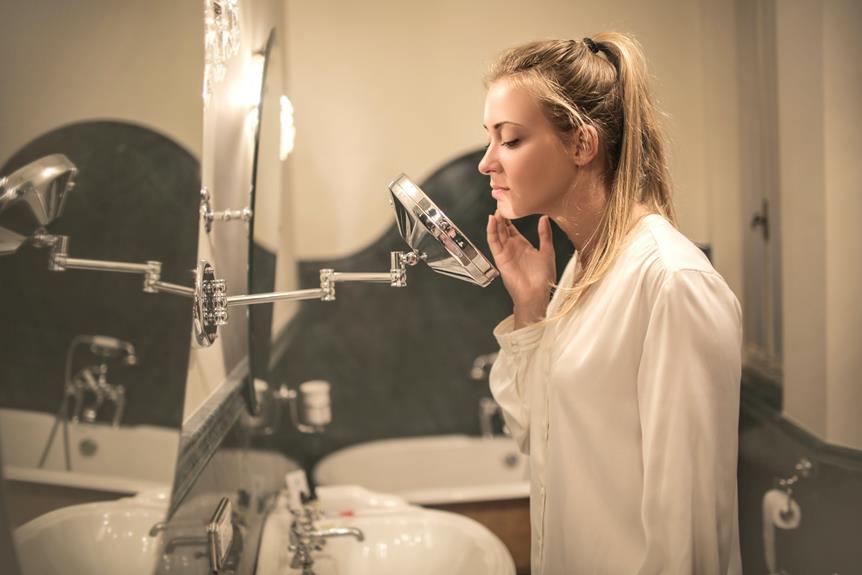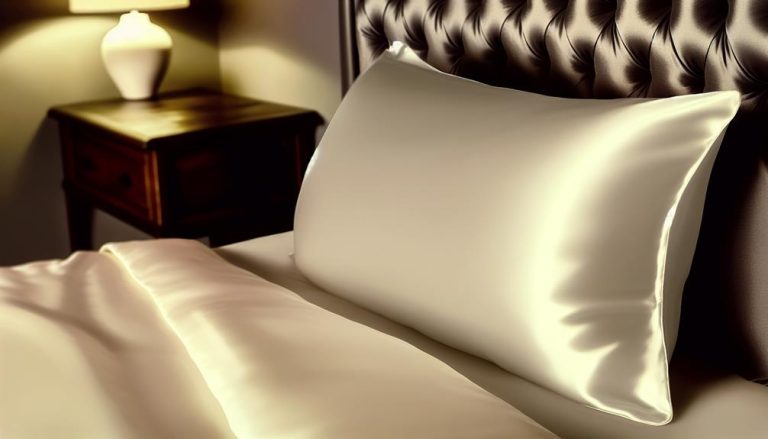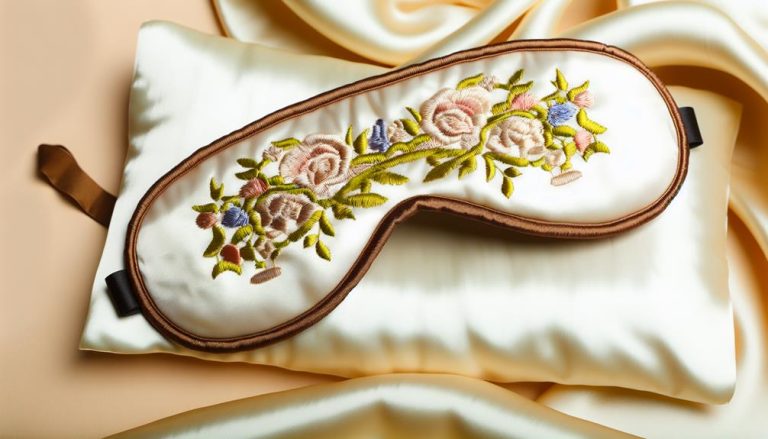As we enter our 30s, we hope to bid farewell to acne like a distant memory of our teenage years. However, for many of us, that dream remains elusive, and we find ourselves grappling with frustrating breakouts.
It turns out that there are several common skincare mistakes that can trigger acne in our 30s, and understanding these pitfalls is crucial to achieving the clear, radiant skin we desire.
In this discussion, we will uncover these mistakes and dive into practical solutions that can help us navigate the treacherous waters of adult acne. So, if you're ready to unlock the secrets to clearer, smoother, and healthier-looking skin, let's embark on this journey together.
Wrong Products for Acne-Prone Skin
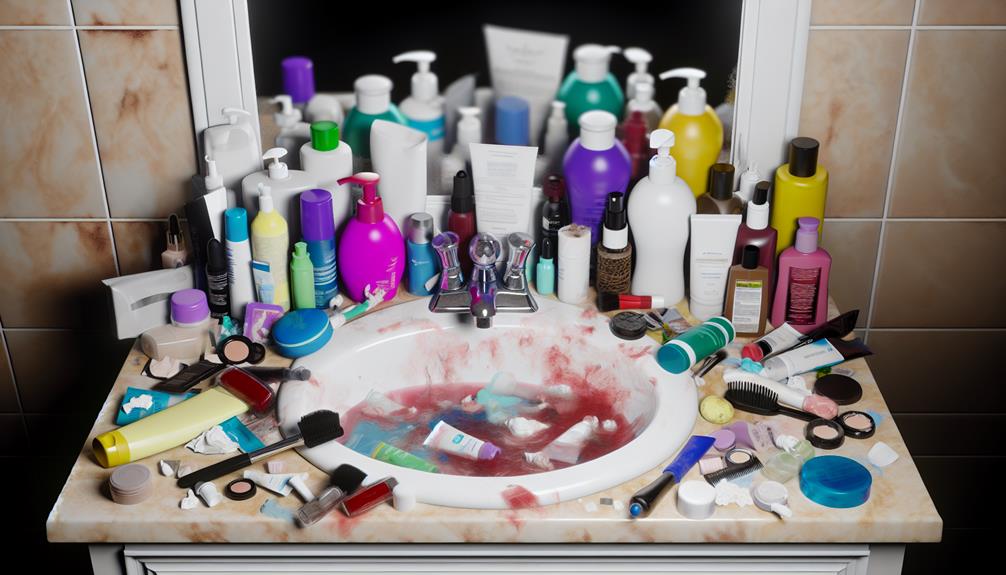
Using the wrong products for acne-prone skin can exacerbate breakouts and aggravate skin irritation. It's crucial to be mindful of the products we choose for our skin. Harsh products strip the skin of natural oils, leading to dryness and irritation. Instead, opt for oil-free, non-comedogenic products specifically formulated for acne-prone skin.
Look for ingredients like salicylic acid or benzoyl peroxide, which can effectively fight acne. Avoid harsh scrubs and opt for gentle exfoliators to promote a healthy shedding cycle. Slow skin cell turnover can lead to the accumulation of dead skin cells and clogged pores. To combat this, use products with glycolic acid or salicylic acid to exfoliate and remove dead skin cells.
Avoid harsh ingredients that disrupt the skin's natural barrier. By choosing the right products, we can prevent acne and maintain healthy, liberated skin.
Ignoring Skin Cell Turnover
Ignoring skin cell turnover can lead to a buildup of dead skin cells and clogged pores, resulting in acne breakouts and dull-looking skin. Here are three important reasons why you shouldn't overlook skin cell turnover:
- Promote a healthy shedding cycle:
When skin cells turnover at a healthy rate, dead skin cells are sloughed off, revealing fresh, glowing skin. This process helps prevent clogged pores and acne breakouts.
- Use exfoliating products:
Incorporating products with glycolic acid or salicylic acid into your skincare routine can help exfoliate and remove dead skin cells. These ingredients gently unclog pores and promote a smoother complexion.
- Avoid harsh ingredients:
Harsh ingredients can disrupt the skin's natural barrier and worsen acne. Opt for gentle exfoliators and avoid abrasive scrubs that can cause irritation.
Not Using a Silk Pillowcase
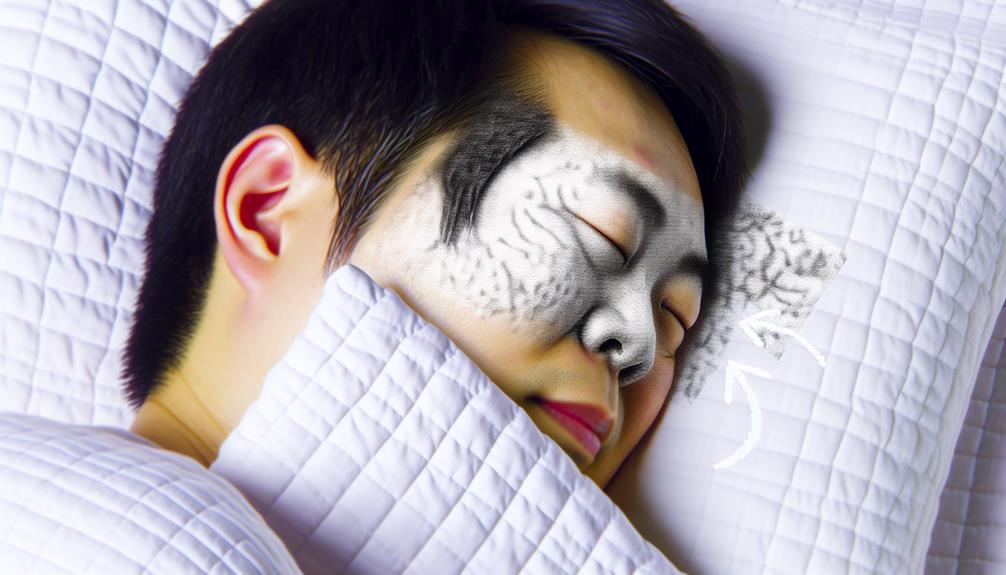
Now that we've explored the importance of skin cell turnover, let's uncover another skincare mistake that can contribute to acne in your 30s: not using a silk pillowcase. While it may seem like a small detail, the type of pillowcase you sleep on can have a big impact on your skin. Cotton pillowcases, which are commonly used, can absorb natural oils from your skin, leading to excess oil production and clogged pores. On the other hand, silk pillowcases are hypoallergenic and regulate skin moisture levels, preventing acne breakouts. To help you understand the benefits of using a silk pillowcase, take a look at the table below:
| Cotton Pillowcase | Silk Pillowcase |
|---|---|
| Absorbs natural oils | Doesn't absorb natural oils |
| Promotes excess oil production | Regulates skin moisture levels |
| Clogs pores | Prevents acne breakouts |
| Can contribute to acne | Helps treat and prevent acne |
Skipping Sunscreen
Don't underestimate the importance of sunscreen in your skincare routine – it's a crucial step in preventing acne flare-ups and protecting your skin from sun damage. Here are three reasons why skipping sunscreen can be detrimental to your skin:
- Sun exposure triggers acne flare-ups: The sun's rays can cause inflammation and worsen existing acne. By skipping sunscreen, you leave your skin vulnerable to these harmful effects and increase the likelihood of breakouts.
- Hyperpigmentation and acne scarring: Sun exposure can lead to dark spots and acne scars. Without sunscreen, your skin is more prone to developing these marks, which can be difficult to fade.
- Worsening of acne: Sunscreen helps to soothe inflammation and protect your skin's barrier. By skipping this crucial step, you risk exacerbating your acne and making it more difficult to manage.
To ensure the health and clarity of your skin, make sure to incorporate an oil-free sunscreen with at least SPF 30 into your daily skincare routine. Your skin will thank you for it.
Lack of Exfoliation
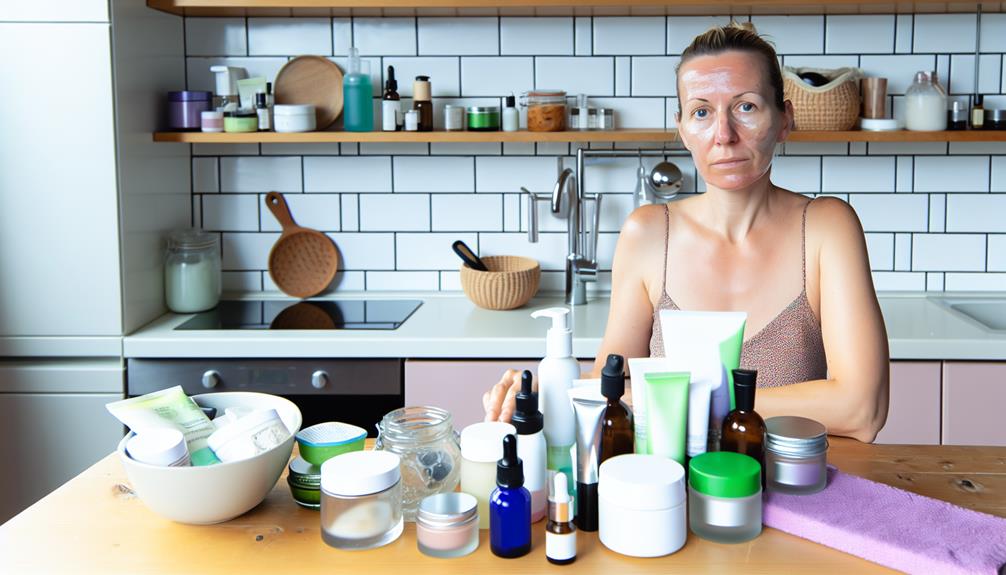
After understanding the importance of sunscreen in preventing acne flare-ups and protecting your skin, it's crucial to address another common skincare mistake: the lack of exfoliation. Exfoliation is a key step in maintaining clear and healthy skin, as it helps to remove dead skin cells and unclog pores. By incorporating regular exfoliation into your skincare routine, you can promote a healthy shedding cycle, reduce inflammation, and prevent future acne breakouts. Opt for gentle exfoliators like BHA salicylic acid cleansers, which effectively remove dead skin cells without causing irritation. Here is a table summarizing the benefits of exfoliation:
| Benefits of Exfoliation |
|---|
| Promotes healthy shedding cycle |
| Removes dead skin cells |
| Unclogs pores |
| Reduces inflammation |
| Prevents future acne breakouts |
Don't neglect this important step in your skincare routine, as lack of exfoliation can contribute to acne breakouts and hinder your journey to clear and liberated skin.
Miscellaneous Causes of Adult Acne
One lesser-known cause of adult acne is polycystic ovary syndrome (PCOS), a hormonal disorder that can contribute to the development of acne. This condition affects the balance of hormones in the body, leading to an increase in androgen levels.
Here are three important points to consider about PCOS and adult acne:
- Hormonal Imbalance: PCOS disrupts the normal hormonal balance, causing an overproduction of androgens. These hormones stimulate the sebaceous glands to produce more oil, leading to clogged pores and acne breakouts.
- Increased Insulin Levels: PCOS is often associated with insulin resistance, which can lead to elevated insulin levels in the body. High insulin levels can trigger the production of excess sebum, further exacerbating acne.
- Inflammation: PCOS can also cause chronic inflammation in the body, which can worsen acne symptoms. The inflammatory response can increase the likelihood of developing severe acne lesions.
If you suspect that PCOS may be contributing to your adult acne, it's important to consult with a healthcare provider for a proper diagnosis and personalized treatment options. They may recommend hormonal therapy, lifestyle changes, or medications to manage the underlying hormonal imbalance and alleviate acne symptoms.
Blissy Silk Pillowcase for Acne Relief
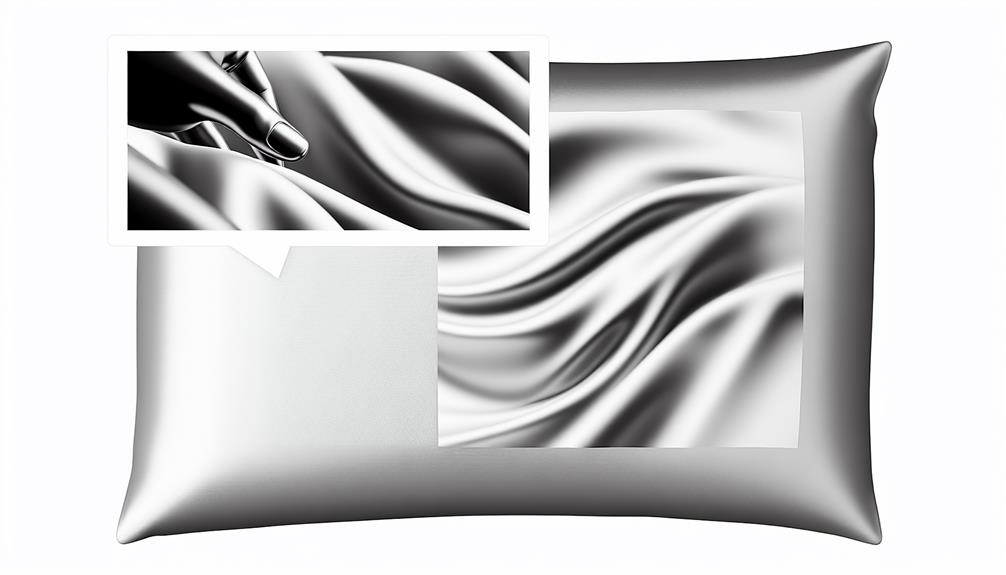
Introducing the Blissy Silk Pillowcase, a game-changer in the fight against acne.
This luxurious pillowcase is favored by beauty experts and dermatologists for its proven acne-fighting benefits.
Made from 100% pure mulberry silk, it's gentle on the skin and helps prevent breakouts.
Unlike cotton pillowcases that absorb natural oils and contribute to clogged pores, the Blissy Silk Pillowcase is hypoallergenic and regulates skin moisture levels.
By not absorbing natural oils, it keeps your skin hydrated and prevents acne flare-ups.
With its silky smooth texture, it also reduces friction and irritation, allowing your skin to breathe and heal while you sleep.
Shop the Blissy website today and take the first step towards clearer, smoother, and healthier-looking skin.
Frequently Asked Questions
What Are Some Other Factors That Can Contribute to Acne in Your 30s Besides Skincare Mistakes?
Other factors that can contribute to acne in your 30s include hormonal changes, stress, and lifestyle choices.
Hormonal fluctuations during this time can lead to increased sebum production and clogged pores.
Stress can also trigger acne flare-ups by increasing inflammation in the body.
Additionally, factors like diet, smoking, and exposure to environmental pollutants can affect the health of your skin.
It's important to address these factors alongside skincare mistakes to effectively manage acne in your 30s.
Are There Any Specific Ingredients That People With Acne-Prone Skin Should Avoid in Their Skincare Products?
There are certain ingredients that people with acne-prone skin should avoid in their skincare products. These include harsh sulfates, alcohol, and fragrance, as they can strip the skin of its natural oils and irritate it further.
Additionally, comedogenic ingredients like coconut oil and cocoa butter can clog pores and lead to breakouts.
It's important to look for products that are oil-free, non-comedogenic, and contain acne-fighting ingredients like salicylic acid or benzoyl peroxide.
Consulting with a dermatologist can help determine the best ingredients for your specific skincare needs.
Is It Necessary to Use a Separate Sunscreen if My Moisturizer or Foundation Already Has Spf?
Yes, it's necessary to use a separate sunscreen even if your moisturizer or foundation already has SPF. While these products may provide some sun protection, they're usually not enough to adequately shield your skin from harmful UV rays.
Using a dedicated sunscreen with SPF 30 or higher is essential for preventing acne flare-ups, hyperpigmentation, and other sun-related skin damage.
Can Using a Silk Pillowcase Really Make a Difference in Preventing Acne?
Using a silk pillowcase can make a real difference in preventing acne. Silk is hypoallergenic and regulates skin moisture levels, preventing excess oil production and clogged pores.
Unlike cotton pillowcases, silk doesn't absorb natural oils, which can lead to acne breakouts.
We recommend trying the Blissy Silk Pillowcase, favored by beauty experts and dermatologists. Made from 100% pure mulberry silk, it's gentle on the skin and can help you achieve clearer, smoother, and healthier-looking skin.
Are There Any Natural Remedies or Home Treatments That Can Help With Acne in Your 30s?
There are several natural remedies and home treatments that can help with acne in your 30s.
One option is to use tea tree oil, which has antibacterial properties that can help fight acne-causing bacteria.
Another option is to apply a honey and cinnamon mask, as both ingredients have antimicrobial properties that can reduce inflammation and kill bacteria.
Additionally, incorporating a healthy diet with plenty of fruits, vegetables, and water can help support clear skin from the inside out.
Conclusion
In conclusion, by avoiding common skincare mistakes and making simple adjustments to our daily routine, we can effectively combat acne in our 30s.
Choosing the right products for acne-prone skin, promoting skin cell turnover, using a silk pillowcase, wearing sunscreen, and incorporating exfoliation into our skincare routine are all essential steps in achieving clear, healthy-looking skin.
By following these tips, we can say goodbye to frustrating acne and hello to smoother, clearer skin in our 30s.

